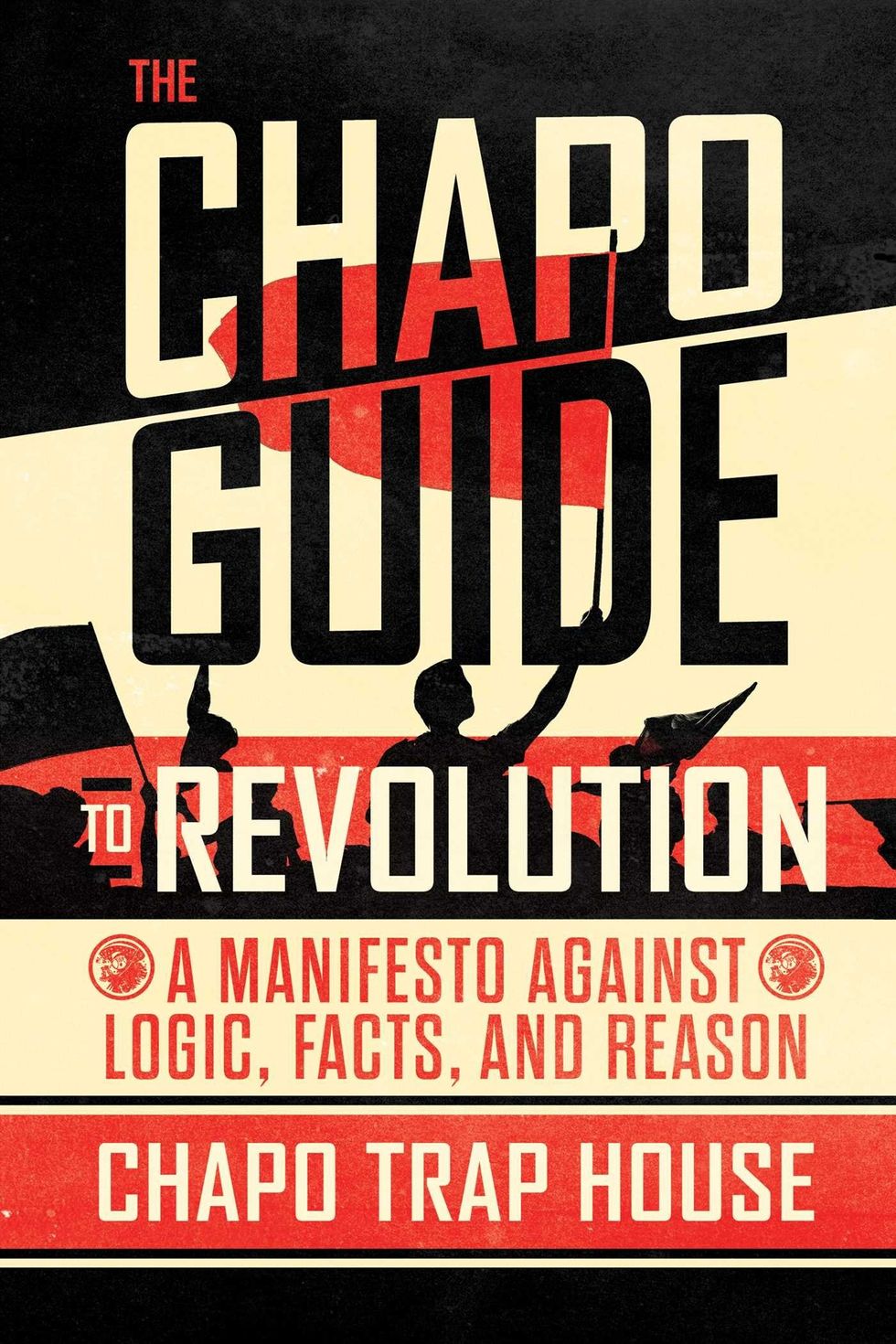
Social Action
Photo by Clay Banks - Unsplash
At a time when reading the news can feel like a dirty litmus test of your values (how upset are you by headlines like, “Millions to Die Prematurely in Asia, Africa by 2050?“), planting your flag in one political camp can feel more convenient than impassioned.
Politics have become little more than entertainment. After political podcasts surged in popularity after Trump’s election, there’s no shortage of hosts willing to filter the news for you with their “hot takes” and bawdy jokes that bank on the quality of their banter rather than thoughtful insight. In the words of Vulture’s Adam Sternbergh, podcasts are “cheap, nice, idiosyncratic, weird, and highly personal. The form, which once seemed like it might not be particularly good at anything, now seems to be good at nearly everything.”
Back in 2004, the world’s first podcast, Christopher Lydon’s Open Source, shot to popularity among the young and disenfranchised during protests of the Iraq War. Lydon and four friends knew a little about politics, a lot about blogging, and too much about the Internet and so launched a new kind of “audio blog post.” Its producer Mary McGrath reflected, “People need help processing where we are in America, and where we’re going.” To help do that, podcasts offered a new terrain of uncensored, un-fact-checked web space.
Indeed, successful podcasts still thrive in a nexus of being raw, angry, and nominally political. Chapo Trap House, a humor/politics podcast that’s gained a cult following since its launch in March 2016, is hosted by five friends who “offer a vision of a new world—one in which a person can post in the morning, game in the afternoon, and podcast after dinner without ever becoming a poster, gamer or podcaster.” Supported by thousands of fans, who donate over $120,000 a month to the group on Patreon, the Chapo crew also sells out live shows all over the country and has even published a book of its signature shock-jock takes on politics and history, The Chapo Guide to Revolution: A Manifesto Against Logic, Facts, and Reason. While the book can be described at best as a “candy-coated version of socialism” and at worst “the stupidest book ever written about socialism,” the podcast is noted as the founding voice of the “Dirtbag Left.” Host Amber A’Lee Frost coined the term to describe individuals who aim to push Democrats to the far left by rejecting mainstream politeness; in their eyes, the Establishment has failed and should be stripped of its prestige through sacrilege and obscenity. Frost penned, “Reclaiming vulgarity from the Trumps of the world is imperative because if we do not embrace the profane now and again, we will find ourselves handicapped by our own civility. Vulgarity is the language of the people.”
So for an hour or two per episode, the Chapo crew shoot the shit with each other, panning weak-willed “libs” and vampiric conservatives alike. “The essential problem is not that liberals are ‘as bad’ as conservatives,” they write in their book, “but rather that there is a giant sucking void at the core of their being.” Meanwhile, they find that “the right wing in America is like Dracula: a grotesque avatar of inherited wealth which is unkillable casts no reflection in mirrors, and lives off the blood of peasants.”
As far as politics go, the Chapo crew presents a watered-down version of socialism, offering more insult comedy and buddy dynamics than insight. Rather than laying out a plan of action for grassroots reform, their bombastic rhetoric rails against libs, neolibs, and “our media overlords” who, they repeat, prevent the classes from uniting by perpetuating the status quo. But Chapo is only a podcast, not an online poli sci course. Their camaraderie keeps their critiques lively, and you can understand how their commentary bears enough humor and genuine socialist interest to appeal to listeners who are more or less left-leaning. Regardless of socialist sentiment, it’s entertainment.

Fill-in-the-Blank Socialism
Podcasts infused with politics feel particularly social, with the medium existing in both personal and public spaces, becoming both a collective and individual experience. Political podcasts surge in popularity surrounding divisive elections, with Chapo coinciding with Donald Trump’s presidential campaign: a cataclysmic event for the Left that propelled socialism back into mainstream consciousness. Judging by a slew of recent polls, American youths are pushing their already liberal attitudes closer to socialism. Axios released the results of a survey in which 70% of Millennial and Gen-Z respondents are in agreement that the “government should provide universal healthcare” and “provide tuition-free college,” as well as “allow private insurance,” with the majority stating they’d “prefer to live in a socialist country.” But this is not their parents’ socialism.
Entering adulthood in the wake of the 2016 presidential election, Millennials and Gen-Zers felt their disillusionment with the government crystallize under Trump’s administration. After coming of age amidst the 2008 financial and housing crises, dutifully going to college and incurring a mountain of debt only to enter an anemic job market, and bearing the brunt of the United States’ institutional failures, their downturned political outlook put a shine on socialism. The Democratic Socialists of America (DSA) saw its membership balloon from 6,000 to 56,000 people in just over two years. Alexandria Ocasio-Cortez, a proud socialist icon, became the first Millennial in Congress by panning capitalism as “irredeemable.” At a recent SXSW conference, she won booming applause by declaring, “We should be scared right now because corporations have taken over our government.” After polling voters between 18 and 25 years old, The Week observed, “For these younger Americans, ‘socialism’ isn’t a dirty word.”
On the contrary, socialism is practically a brand. According to New York Magazine‘s article, “When Did Everyone Become a Socialist?” calling oneself a socialist is what all the cool kids are doing. The piece’s tagline sums up the fickle side of its appeal: “Pinkos have more fun. Socialism is AOC’s calling card, Trump’s latest rhetorical bludgeon, and a new way to date in Brooklyn.” Calling oneself a socialist is hip because it “sounds sexier than anything else out there, without necessarily advocating anything too risky.”
While the DSA has gained momentum in recent years, its tenets remain vague: social ownership of the means of production, decentralized government, and restructuring private corporations to serve the public good rather than elite owners. Likewise, the Chapo crew specifies its ideal vision of a socialist society in the last pages of their book while omitting what kinds of reforms and social structures can actualize and then maintain the end goal: “After setting everyone on equal footing (by seizing the billionaires’ money, socializing their wealth, and handing the keys of production over to workers), you’re looking at an economy that requires something like a three-hour workday, with machines taking care of most of the drudgery; and—as our public fund pays for things like health care, education, scientific research, and infrastructure—all this technology actually makes work quicker, easier, and more enjoyable.”
In many ways “Millennial socialism” is meaningless—stripped of its historical significance, the label is a marketing tool that signals “wokeness” and energetic rebellion sans substance or authenticity. Worse, in terms of social impact, it functions more as a clique than a political party. Marked by a cool progressive attitude popular among “New York’s creative underclass,” socialism is repackaged like a $1,000 “Supreme” brick—trendy, mindless, and devoid of context.
Ironic Media
But media forces politics and entertainment to live together in a bog of broadcasted debates, Twitter feuds, and inflammatory talking heads: the muddy culture war. As a form of independent media, podcasts may be “the most significant and exciting cultural innovation of the new century.” Streamed at will, they drift without context; or rather, listeners shape the context, individually determining what’s a genuine critique, what’s exaggerated for comedy, what’s attacking their beliefs.
But when ironic media willfully misinterprets or mocks both conservative and liberal agendas, the distinctions blur between caricature and commentator. One socialist (?) podcast that consciously distances itself from Chapo is Red Scare, a “cultural commentary podcast hosted by bohemian layabouts” (and daughters of Soviet immigrants) Anna Khachiyan, and Dasha Nekrasova. The proudly Russian-American women alternate between critiques of the “tyranny of neoliberalism” and the failings of Western feminism, from the #MeToo movement being overplayed to challenging feminist railings against domestication and beauty culture. Khachiyan once tweeted, “Sorry, but I’m too glamorous to be part of the dirtbag left.”
Earning over $10,000 per month from Patreon donations, the Red Scare enjoys a healthy following among early twenty-somethings who ascribe to Khachiyan and Nekrasova’s brand of edgelord feminism. Yet, by Western standards, the women hold somewhat conservative views of gender dynamics. While the Chapo crew has been accused of misogyny for some of their sacrilegious takes on the Democratic Establishment, the Red Scare women get away with castigating liberal feminism as “shame-based.” Khachiyan, a proud dropout of NYU’s Art History Ph.D. program, mocks liberal outrage by voicing blunt conservative attitudes in exaggerated polemics that are only half-jesting; ultimately, the point is to make a mockery of both sides: “I think that women want a daddy, a provider, whether that’s the state or an individual man. I think it’s positive or pleasing when a man pays for you or compliments you. I think heteronormative or heterosexual sex is mostly about the male physically dominating the woman in the bedroom and both sides get off on that; it’s not a shameful thing.”
When riffing off each other, the two will up the stakes to court outrage. Nekrasova first gained a following after a representative for InfoWars challenged her to defend her support of Bernie Sanders at SXSW while she happened to be dressed in a distinct sailor chic. Her withering responses, delivered with condescending vocal fry, fondly earning her the nickname “Sailor Socialism” online. When Noreen Malone profiled Red Scare for The Cut, she described their repartee as “putting so much of the language of contemporary feminism and femininity through a feedback loop until it becomes meaningless: even their mocking of it is indistinguishable from their organic use of it. It is a document of the confusion of our moment.”
Whether they’re amusing each other with genuine rants against the Establishment™ or ironic references to the far right (“a life of feminine bondage,” Nekrasova quipped, “sexual objectification, I’m all for that”), the two package socialism as an exotic alternative to the trappings of Western culture. Khachiyan pans liberal women as “crying out for basically what the leftists have been advocating for, a state safety net, and they’ve attributed all of capitalism’s ills to patriarchal oppression or toxic masculinity.” In a recent episode, titled, “The Socialism of Small Differences,” Khachiyan told Nekrasova that her Sailor Socialism bit was more progressive and impactful than Alexandria Ocasio-Cortez (whom she’s dubbed on social media as a “truly dangerous idiot of legendary proportion”). “You’ve done more for the DSA than AOC,” Khachiyan said. “You basically did the same thing, which is, like, normalize socialist politics as not being a cause for solely neckbeards.”
Critics of the podcast denounce the women’s post-ironic veering between sincerity and sarcasm, with claims that their “provocations are not jokes so much as a way to suggest that both politics and political speech are meaningless, a posture that precludes earnest advocacy for anything.” But like Chapo, it is just a podcast—Khachiyan describes that they started because they “really wanted a feminist podcast that was different from the typical kind of left-liberal feminist shows,” not a call to revolution.
The scramble for socialism among today’s youth is partly political but mostly a reaction to media’s loop of commentary and criticism, reeling between cynicism and sincerity without giving reasons to trust either. In the age of podcasts, joining an audience means choosing the voices who’ll filter the noise of the culture war for you. The hosts of Chapo Trap House and Red Scare are entertainers cinching the notion of socialism around their brands. For those tuning in, socialism provides a sexy filter that’s ideologically vague enough for its banner-wavers to remain safely noncommittal. Not only is it trendy, but it’s a way to escape the inner conflict captured by Howard Zinn’s oft-quoted analogy, “You can’t stay neutral on a moving train”—that is, no one exists in a cultural vacuum, and every choice you make is political. Millennials and Gen-Zers were born in a time when being young and disenfranchised isn’t enough to define a generation anymore. Claiming de facto membership to a group of dabbling leftists is better than getting left behind their own times.
POP⚡DUST | Read More…
Down the Rabbit Hole: Exploring Weird YouTube
The Weird, Heartless Magic of Marie Kondo: The Cleanest Cult to Ever Exist
This Week in Internet Hell: Evil Spirits for Sale and a Good Kind of Stroke
- AOC’s “Tax the Rich” Dress Wasn’t That Radical – Popdust ›
- The Best Women-Hosted Political Podcasts – Popdust ›
- White Women Are Mad Greta Thunberg Is Time’s Person of the Year – Popdust ›
- Millennials like socialism — until they get jobs – The Washington Post ›
- Don’t Let The Alarmists Fool You, Millennials Don’t Think Socialism Is ›
- The Myth of Millennial Socialism – American Greatness ›
- Millennials are much more open to socialism ›
- Millennial socialism – The resurgent left ›
- Millennial socialists want to shake up the economy and save the … ›
- What Is Millennial Socialism? – The American Interest ›
- Socialism’s millennial fans don’t even know what it is ›













